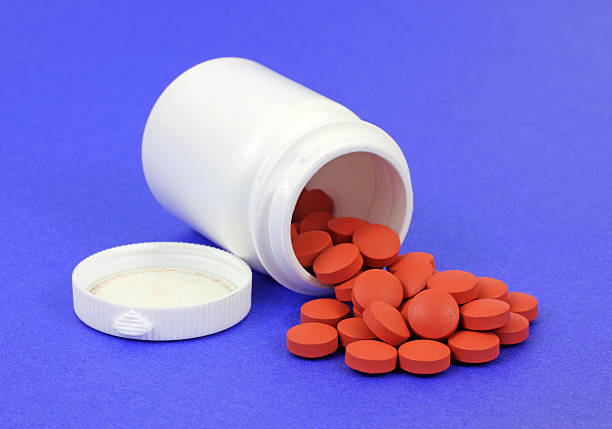When it comes to managing pain and inflammation, Advil, a popular brand of ibuprofen, is a go-to option for many. Its widespread availability and potent effect make it a staple in medicine cabinets worldwide. However, when life’s celebrations or sorrows lead us to alcohol, it’s crucial to understand how this medication interacts with alcoholic beverages.
Many might think that a small dose of Advil combined with a glass of wine or beer is harmless, but it’s essential to delve deeper into the potential risks and effects this combination might have on our bodies.

In this article, we aim to provide a comprehensive and expert analysis of what happens when Advil meets alcohol, ensuring you have all the information needed to make safe and informed choices.
The Science Behind Advil and Alcohol
Advil falls under the category of non-steroidal anti-inflammatory drugs (NSAIDs), known for their dual action in reducing pain and inflammation. When you take Advil, it works by inhibiting the production of certain chemicals in the body that contribute to inflammation and pain. On the other hand, alcohol is a depressant, which means it slows down your body’s central nervous system.
When these two substances are combined, they can have a synergistic effect, meaning the effects of both can be amplified.
This combination can lead to increased irritation and potential damage to your stomach lining. Advil is already known to be harsh on the stomach, and when you add alcohol into the mix, it can increase the risk of stomach bleeding and ulcers. Additionally, both Advil and alcohol are metabolized in the liver.
The liver can only process a certain amount of these substances at a time, so when taken together, they can overwhelm the liver, leading to potential damage.
The Risks and Side Effects
Understanding the risks and side effects associated with mixing Advil and alcohol is crucial. The most immediate and noticeable risk is the potential for increased gastrointestinal bleeding. Signs of this can include blood in your stool, vomiting blood, or a feeling of extreme fatigue. Long-term, the combination can lead to liver damage, a severe and potentially life-threatening condition.
Additionally, both alcohol and Advil can lead to drowsiness and dizziness on their own. When taken together, these effects can be enhanced, leading to impaired judgment and coordination. This is particularly concerning if you need to drive or operate heavy machinery, as it can increase the risk of accidents.
It’s also important to consider the cumulative effect of regularly combining these two substances. Even if you don’t experience immediate side effects, regularly mixing Advil and alcohol can lead to chronic issues over time, such as liver disease and chronic gastrointestinal problems.
Precautions and Recommendations
Given the potential risks associated with mixing Advil and alcohol, it’s clear that caution should be exercised. If you find yourself in a situation where you’ve consumed alcohol and are considering taking Advil, it’s recommended to wait until the alcohol has had a chance to metabolize out of your system. This typically takes about one hour per standard drink consumed.
If you’ve taken Advil and are considering drinking alcohol, it’s advisable to wait at least six to eight hours, depending on the dosage of Advil taken. If you’ve taken a higher dose or a prolonged-release formula, you should wait even longer.
Of course, the safest option is to choose one or the other. If you’re in pain, opting for a pain management strategy that doesn’t involve medication, such as rest or applying ice, can be a safer choice if you plan to consume alcohol. Similarly, if you’re celebrating and plan to drink, being mindful of your alcohol intake and staying hydrated can help prevent the need for pain relievers like Advil.
Expert Insights and Personalized Guidance
In my years of experience in the healthcare field, I’ve encountered numerous cases where individuals underestimate the impact of mixing medications like Advil with alcohol. It’s a common misconception that over-the-counter medications are safe under all circumstances, but the reality is that they come with their own set of risks and potential interactions.
It’s paramount to approach this combination with caution and a well-informed mindset. Paying attention to your body, understanding the signs of potential complications, and seeking medical advice when unsure are crucial steps in ensuring your safety.
Remember, every individual’s body reacts differently, and what might be safe for one person could be harmful to another. Therefore, seeking personalized guidance from a healthcare professional is always the best course of action.
They can provide insights tailored to your specific health needs and medication regimen, ensuring you make the safest choices for your health.
Conclusion
In conclusion, while Advil is a potent and effective medication for pain and inflammation, and alcohol is a socially accepted beverage, its combination can lead to severe health risks. By understanding the science behind their interaction, being aware of the potential risks and side effects, taking necessary precautions, and seeking expert and personalized guidance, we can make informed choices that prioritize our health and well-being.
Remember, your health is invaluable, and taking the time to make safe choices is an investment in your future.

Editorial Staff
Our writers, editors, content managers, and SEO specialist. We all take part in crafting amazing articles. We spend hours ensuring that each article is based on facts, researched, and thorough. You'll never want to click the back button to look for more answers other than here!
